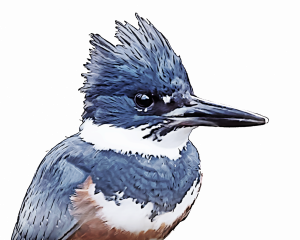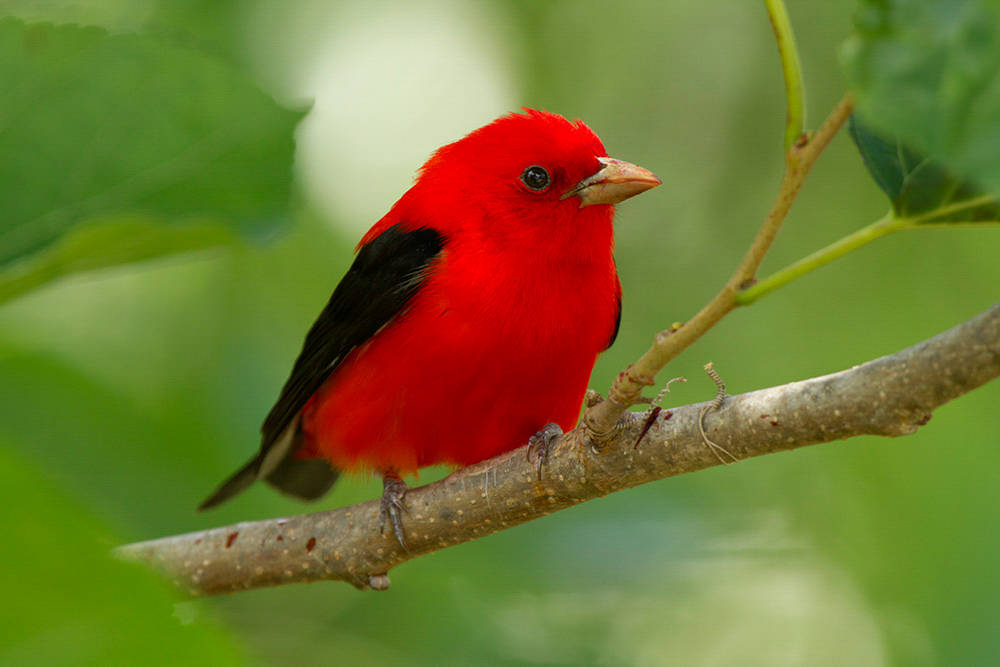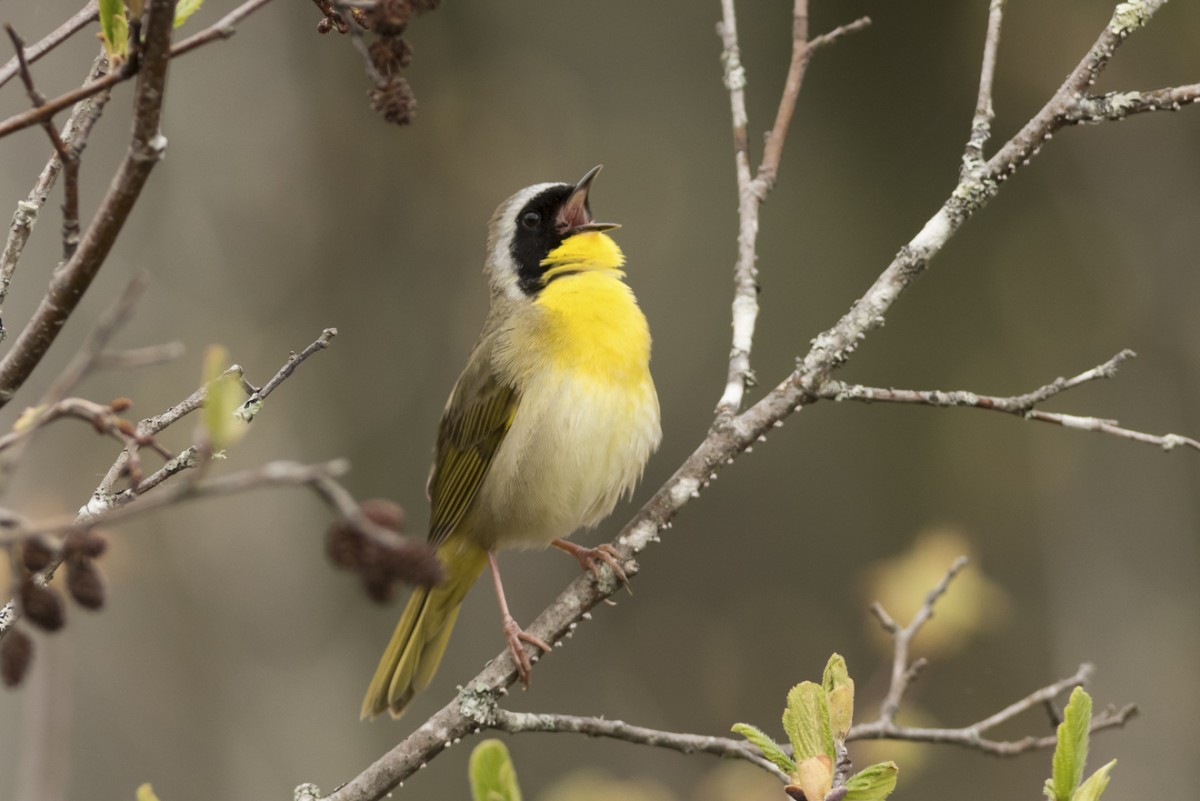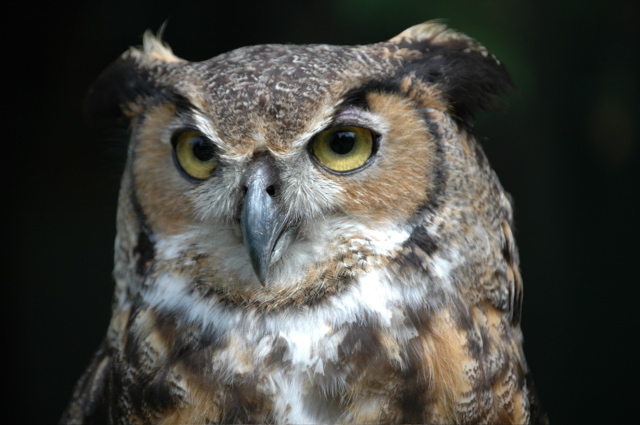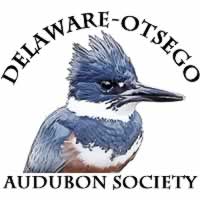December 2004
Election Post-mortem—With the 2004 elections now behind us, it’s clear that Nov. 2 was not a good day for the environment. The re-election of President George W. Bush and strengthening of Republican majorities in the US House and Senate mean that the attacks on our most basic environmental protections will expand and increase, and stopping them will be that much more difficult.
President Bush has already signaled that he believes the election provided an endorsement of his policies by the American public. However, the environment was a minor issue in the campaign—if it had played a larger role, the results may well have been different. Polls still show clean air and water, wildlife, and wilderness to be important to the public, but they were trumped by security and values this year, as was nearly everything else.
First in the President’s gunsights may well be the Alaska National Wildlife Refuge. The Bush administration has pushed for oil and gas drilling in this fragile and important area since they first came into office. They have been stopped in the past, with enough Republicans siding with Democrats to provide narrow margins against drilling. Things are different now.
The incomparable wilderness that is ANWR is habitat for more than 250 animal species, including wolves, grizzlies, caribou and millions of migrating birds. Nineteen million acres of boreal forests, dramatic peaks, tundra and wild rivers make this northeast Alaskan refuge the nation’s largest. There is no replacement for ANWR. The roads, construction, drilling equipment, pipelines, and threat of spills of oil and other toxic materials will remove the wilderness quality of the refuge, impact the wildlife for which it was established, and possibly pollute forever a unique and pristine area.
This immense loss would provide minimal benefits to the US and global energy picture. The US Geological Survey estimates less than a six-month supply of oil for American consumers can be recovered from ANWR. Even less natural gas occurs under the Refuge relative to US demand. At no time would oil from the amount to more than 2 percent of US needs, and it will take 7 to 10 years for any oil to make it to market. Even if the highest predictions of oil in the refuge were to come true, it would produce no more than a blip on the global oil market and would have a negligible impact on the price of oil. Nor would drilling for oil in the refuge address our country’s long-term energy problems.
What you can do— Drilling in ANWR is a line environmentalists have drawn in the sand. If this battle is lost, it will signal a catastrophic period for our natural resources and environment. Our representatives in Congress must know that this likely first battle is critical. The best chance for us to influence the debate and vote may well be via US Representatives Sherwood Boehlert, John Sweeney, Michael McNulty and Maurice Hinchey.
Boehlert in particular is influential with other Republican House members and will have a major role in stemming the tide against a vote to open ANWR. There is hope that a coalition of Democrats, coal state Representatives, and enlightened Republicans could stymie this effort. Sweeney, another Republican, will be an important voice also. McNulty and Hinchey can be counted on to oppose drilling, but they need to work hard on the floor to convince their colleagues.
In the Senate, it is likely that the Republican leadership will use a parliamentary maneuver to introduce ANWR drilling legislation as a budgetary item in order to avoid a filibuster by opponents. This makes the fight tougher, but again, there are Republican opponents to opening up ANWR who may provide crucial votes if lobbied by their colleagues including US Senators Charles Schumer and Hillary Clinton.
Write your Representative and Senators and let them know how important ANWR is as a wilderness and a refuge. Emphasize the minimal benefits to be gained by this dangerous action and ask them to use all their influence to keep the oil companies out.
Tongass National Forest needs help— Alaska’s Tongass National Forest has been described as America’s Rainforest. Established by Teddy Roosevelt in 1907, the Tongass is the largest intact temperate rainforest in the world. Its giant Sitka Spruce and other old growth trees, which had already been growing for hundreds of years before Columbus came to America. The forest is home to wolves, bears, salmon and Bald Eagles that have disappeared from many other parts of the country.
Unfortunately, the huge trees of the Tongass have long been targets of rapacious logging companies. Unbelievably, not only has the US Forest Service allowed wide-spread logging there, but has actually subsidized this activity at taxpayer expense. We all have been paying to have this national treasure destroyed! The US has lost as much as $35 million a year via this destructive boondoggle.
This year, US Sen. John McCain (R-AZ), a staunch fiscal conservative, sponsored legislation that would prohibit taxpayer dollars from being spent on new logging roads in the Tongass. Sen. McCain’s concern was over the dollars being wasted for logging, but the effect of the legislation would be to slow or halt cutting of old growth trees. However, Alaska’s powerful senators oppose McCain’s bill.
This summer, Steve Chabot (R-OH) and Robert Andrews (D-NJ) sponsored an identical measure in the House of Representatives and received bipartisan support with a 222 to 205 vote in favor of ending taxpayer subsidies used to log the Tongass National Forest. This was one of the few environmental successes in the House this session. Our local Representatives, Sherwood Boehlert and Maurice Hinchey voted for this legislation.
Unfortunately, Congress has adjourned without taking action on the McCain bill. However, he plans to offer an amendment to the Interior Appropriations bill when Congress returns in November. With sufficient bipartisan support, the Tongass can be protected from subsidized logging and this magnificent resource saved.
What you can do— Contact Reps. Boehlert and Hinchey and thank them for their support of the Chabot/Andrews amendment. Contact US Sens. Hillary Clinton and Charles Schumer and urge them to support Sen. McCain’s amendment when Congress reconvenes.
More information on this issue can be found at the American Wilderness Coalition’s web site: http://capwiz.com/awc/home/.
Fall voters face environmental issues— In addition to the presidential election in November, all seats in the US House of Representatives, one US Senate seat, and all seats in the NY State Legislature are up for grabs this year.
The US Senate race features incumbent Democrat Charles Schumer against Republican Howard Mills. Mills has served in the NYS Assembly for 6 years. His environmental record is undistinguished and in the most recent ranking of legislators by Environmental Advocates, he received a rating of 75, one of the lowest among Albany lawmakers. Among the bills he opposed that year was legislation reducing pollutants from power plants; and requiring the phase out of pesticide use by state agencies and departments.
Charles Schumer is finishing his first term in the US Senate after 18 years in the House. In 2003, Schumer received a 93% rating from the League of Conservation Voters (LCV) and 100% from the Sierra Club.
In the 24th Congressional district–including all of Chenango, plus western Otsego Counties–incumbent Republican Sherwood Boehlert faces Democrat Jeffrey Miller. Boehlert has an outstanding environmental record in his 22 years in Congress, consistently receiving high marks from conservation groups. He is considered a leader on these issues among his Republican colleagues and has stood against the Bush administration in this regard. Jeffrey Miller is a political newcomer. A college professor, Miller’s web site states: “I support conservation and greater uses of renewable and alternative energy to reduce pollution, lower our energy costs, and lessen our dependency on foreign oil.”
In the 22d Congressional district—eastern Otsego and Delaware Counties, incumbent Republican John Sweeney is opposed by Democrat Doris Kelly. Sweeney, a 3-term representative, received ratings of 15% and 25% from the LCV and Sierra Club respectively. He is closely aligned with the Bush administration on environmental issues, including voting for oil drilling in the Alaska National Wildlife Refuge. Elementary school teacher Doris Kelly calls for increased funding for national parks and the US Fish &Wildlife Service and providing manufacturers and consumers tax incentives to create and buy clean air cars.
As is too often the case, state legislative races are generally uncontested including the 111th Assembly District– incumbent Democrat William Magee –with a 77% 2003 voting record from Environmental Advocates, and the 51st Senate District— incumbent Republican James Seward — 63% rating from Environmental Advocates.
Locally, only the 127th Assembly District offers a choice to voters. This district covers southwest Otsego, northern Delaware and all of Schoharie Counties. First term Republican incumbent Daniel Hooker — with a low 2003 rating from Environmental Advocates of 62% is challenged by retired state worker Kevin Neary.
Administration attacks on environment continue— With the approaching presidential election, one would expect the Bush administration to lessen its ongoing assault on our nation’s environmental protections, in order to gain political points.
Not so! Just in the past month, the administration has backed off on enforcement of clean air rules, proposed broad environmental exemptions to numerous government agencies, and opened up some of America’s finest Western wilderness to oil and gas development.
Perhaps President George W. Bush can be credited with holding firm to his convictions, but these stances benefit only energy companies and other special interests, and provide the government with more tools to do environmental damage without public involvement.
In July, the administration stalled lawsuits against polluting power plants. The lawsuits involve rules under which utilities are required to add modern air pollution controls when they expand or upgrade their facilities. In addition, earlier in the year the President put off even modest reductions in mercury emissions from power plants until 2025, even though the Clean Air Act calls for maximum possible reductions by 2008. Mercury stands as one of the most toxic substance in our air and waters, threatening humans and wildlife alike.
Also in July, Bush proposed “categorical exemptions” federal environmental regulations for numerous agencies if they invoke national security. This would exclude the public from reviewing and commenting on government projects. There may be cases where security and secrecy are needed, but these exemptions are overly broad and lack a showing of need.
Most recently, the administration announced plans for gas and oil development in wilderness areas of Colorado and Wyoming. The parcels include ancient stands of junipers and pinion pines, and provide habitat for the largest migratory game herd in the lower 48 states (50,000 pronghorn antelope), Mormon pioneer trails, and numerous American Indian holy sites.
In another blow to our public lands, the President declared in mid-July that it will eliminate the hard-won roadless rule to open nearly 60 million acres of pristine, National Forests to logging, mining, oil and gas drilling and road building. This may well stand as one of the largest environmental rollbacks of the modern era.
What you can do— Get involved in this year’s election campaigns—both at the local and national levels (more on the local and state races next month). There is a public comment period on the roadless rule rollback until Sept. 14. More information, including how to comment, is available at www.ourforests.org.
Migratory Bird Treaty Act considered for amendment— The Migratory Bird Treaty Act of 1918 (MBTA) is the nation’s premier bird protection law. Enacted in large part through the efforts of the early Audubon Societies, the law implements agreements with other nations, including Canada, Russia, and Mexico.
The purposes of the MBTA are to conserve and manage migratory birds internationally; to sustain healthy migratory bird populations; to provide and protect habitat; and to restore depleted populations of migratory birds. The heart of the law is the provision making it unlawful “by any means or manner to pursue, hunt, take, capture [or] kill” any migratory birds except as permitted by regulations issued by the US Fish & Wildlife Service (USFWS).
Generally the MBTA has worked well, resulting in the protection and restoration of many at risk species, including waterfowl, wading birds and raptors. However, in recent years, there has been a growing trend by the USFWS to allow governmental agencies and even private interests to kill migratory birds or destroy nests on the basis of politics and perceived social or economic conflicts, rather than the sound science the agency should use.
One of the prime examples of this is the ongoing massive extermination of Double-crested Cormorants in NY and other states to benefit fishing interests. In fact, the USFWS has essentially abandoned its responsibilities under the MBTA by giving the states free rein to manage cormorants, and plans to do the same for Canada Geese. The Service also has allowed killing of vultures in Virginia that roost close to residences or chew on shingles or weatherstripping. Under consideration is lethal control of herons, gulls and pelicans, also on the basis of their consumption of fish.
Recently added to the controversy over the USFWS’ policies is a federal court decision denying a permit for the state of Maryland to reduce Mute Swans on Chesapeake Bay. The swans are a non-native species, which had been considered unprotected by the MBTA. It is feared that this decision may extend to other non-native species, and legislation has been introduced in Congress to amend the MBTA to specifically exclude non-native birds.
Although there is little argument that Mute Swans and other exotic birds threaten native birds and habitat, it is questionable whether the USFWS should be handed more authority under the MBTA when they are allowing the law to be manipulated by politics and special interests. If the law is to be amended, it should also make clear that the Service must use sound science in its determinations, and that permits to kill or otherwise take native species should not be granted on economic or social grounds.
What you can do— Contact US Representatives Sherwood Boehlert and Maurice Hinchey and urge them to work for amendments to the MBTA that ensure the Fish & Wildlife Service carries out its responsibilities on the basis of science–not politics. Insist that the practice of passing of these issues off to the states be halted under the law.
Bigger Better Bottle Bill moving in Albany— This could be the year that the state legislature finally catches up with the rest of the state and recognizes that consumers have moved to juice drinks and bottled water as their beverages of choice, and that these containers are now a major part of our litter and landfill problem.
Non-carbonated drinks are not included in NY’s successful bottle deposit law, and it is clear they need to be. Just as clear is public support for legislation to expand the law. A recent poll commissioned by Environmental Advocates of NY (EANY) and other groups questioned 800 NYers and found that 80% supported the current law and 70% supported adding non-carbonated beverages.
Support for the current law is understandable. NY’s Bottle Bill has removed 75 billion containers from the waste stream since it was enacted over two decades ago. This translates into 5.2 million tons of material, and over $300 million in savings in landfill costs, according to EANY, as well as reducing environmental impacts by recycling the glass, plastic and metal containers.
The Bigger Better Bottle Bill, as it has been dubbed, would build on this success by adding non-carbonated drinks to the list of deposit containers. It would also capture the significant amount of money from unclaimed deposits now kept by beer and soda distributors. The distributors claim this money— over $100 million annually—is needed to offset their costs. However, the expenses of changing over to deposit containers have been repaid many times for these companies.
The legislation would divert these unclaimed deposits to the Environmental Protection Fund (EPF) where they can properly be used for recycling programs, land protection and other worthy projects. It is estimated that an expanded bottle bill could provide $179 million a year for the EPF.
What you can do— The BBBB is getting more consideration this year, but needs a push, especially in the State Senate. A particular target is Senate Majority Leader Joseph Bruno who sides with the beverage industry on this issue. Write your legislators and the Governor and urge them to reduce litter, increase recycling, and benefit the environment by passing this legislation.
Threat to NY’s forests from Albany— Once again, Gov. Pataki and the NY DEC are pushing to get All Terrain Vehicles onto public lands. The latest attempt uses the governor’s budget to establish an ATV trail fund and to allow the DEC Commissioner to put in trails without public participation by avoiding the SEQR process.
Many will remember the battle in the summer of 2000 over a 100-mile ATV trail planned for the Treaty Line State Forests in Broome, Chenango and Delaware Cos. DOAS played a major role in stopping that trail, but the state hasn’t given up. If the language in the governor’s budget had been in place during the Treaty Line process, NY might well have opened our forests to these destructive machines.
Among the problems with ATVs:
- They are high impact motor vehicles that erode and compact soil; create noise, air pollution, trash and fuel spills; kill reptiles, amphibians and other small animals; damage plants; and disrupt sensitive nesting birds.
- Other forest users are pressured out. Our public lands are among the last remaining areas for low-impact recreation. Birders, hikers, photographers, horse riders and others will lose these areas when ATVs are present.
- DEC cannot adequately enforce current forest regulations. Even if more money is made available for controlling ATVs, how could they possibly patrol these trails? ATVs regularly leave designated trails and trespass on private property.
What you can do— The Governor and legislators need to be contacted immediately. Remind them of the controversy surrounding opening the Treaty Line Forests and other state land to ATVs. Let them know there is no reason to exempt trails from SEQR to benefit one narrow interest group. State your opposition to the building of ATV trails on land owned and controlled by NY State.
Write Gov. Pataki a polite but firm letter. Let him know you strongly object to ATVs on our state lands, and that he is wrong in keeping the public out of this decision. Email: gov.pataki@chamber.state.ny.us, and mail to Executive Chambers, Albany, NY 12224.
Send a copy of your letter to Assembly Speaker Sheldon Silver, speaker@assembly.state.ny.us, NY State Assembly, Albany, NY 12248; and Senate Majority Leader Joseph Bruno, bruno@senate.state.ny.us, NY State Senate, Albany, NY 12247. These two legislators negotiate the state budget with the Governor. It is also important to contact your own Senator and Assemblymember with the same message.
Snowmobile plan threatens Adirondacks— The NY State Dept. of Environmental Conservation recently released a draft snowmobile plan for the Adirondack Park. The document lays out how the state anticipates managing the increasing number of snow machines in the Adirondack Forest Preserve in the future.
Snowmobilers and clubs have been pushing for longer, straighter and wider trails to accommodate the new generation of bigger and faster sleds. Currently, trails are limited to the width of a footpath, in order to maintain the character of wild forest. However, the DEC plan envisions trails up to 15 feet wide, and would also allow clearing and smoothing of trails, with removal of rocks larger than 6 inches. Essentially these would be roads rather than trails.
The plan would permit the use of motorized equipment in the Forest Preserve to prepare trails and to groom them for snowmobilers. This is in violation of the “forever wild” clause of the state constitution. Currently, there is a cap of about 850 miles of snowmobile trails in the Adirondack Park, according to the Adirondack Park State Land Master Plan. The new DEC plan would arbitrarily eliminate this limit.
There is also serious concern over these new trails encouraging illegal all-terrain vehicle use in the Forest Preserve. This activity is already rampant, and wider, smoother trails will be even more of an invitation.
One aspect of the plan that is supported by environmentalists is the goal of relocating major “connector” trails to highway corridors, and away from the forest interior. This would lessen forest fragmentation and localize impacts.
What you can do: DEC is accepting written comments on the plan until March 31. Stress that the plan needs to respect the “forever wild” clause of the state constitution, and protect the character of the Adirondack Park. Also call for an accurate inventory of current and proposed trails, and a full assessment of the air quality impacts of snowmobiles.
Send comments to: Rob Messenger NYS DEC Bureau of Forest Preserve Management, 625 Broadway, Albany, NY 12233-4254; by fax: 518-402-9028; or by email: lfadk@gw.dec.state.ny.us. Copies of the Draft Plan are available at any DEC office or at http://www.dec.state.ny.us/website/dlf/publands/snow/index.html. Further information can be found at http://www.protectadks.org/calltoaction2004_02.html.
Election 2004— With the start of the first caucuses and primaries, the pivotal election season of 2004 is underway. Positions to be decided include President, U.S. Representatives, and NY State Assemblymembers and Senators, among others. The outcomes will in large measure determine the future of our environment for the foreseeable future.
The intensity of the current administration’s attack on the environment has surprised even those who warned about George W. Bush’s views in 2000. A brief look at the past 4 years shows a broad assault on our most basic environmental laws and standards:
- Endangered Species—the administration has refused to designate any new endangered species, except under court order. This is in addition to an existing long backlog of species needing protection and recovery. Also, the Interior Dept. has allowed logging to move forward without consultation with the US Fish & Wildlife Service under the Endangered Species Act. The Administration is also working to enable the use of new pesticides without input from USFWS.
- Clean Water—Pres. Bush has proposed weakening standards for arsenic in drinking water. The EPA recently announced its intent to allow sewage into waterways during storms. Plans to dramatically reduce the amount of protected wetlands are in the works.
- Clean Air–the Bush administration has announced plans to significantly weaken emission controls on industry and power plants for toxins such as mercury and acid-rain forming chemicals including SO2 and NOX.
- Global warming— President Bush has essentially written off climate change as an issue. His approach is that “we just have to deal with it”. The Kyoto treaty, approved by most nations, has been ignored by the administration.
What you can do— These and many other actions may well worsen depending on the outcome of the 2004 elections. It is imperative that conservationists be involved in the political process this year, with their voices, their dollars, and their votes.
Take the time to look at candidates’ records, at the national, state and local levels. Insist that environmental concerns be a major part of the debate this year. A candidate who refuses to discuss these matters is a candidate who doesn’t think they are important.
There are a number of sources of information on where candidates stand. The local and state League of Women Voters assess candidates’ records. Environmental Advocates in Albany (http://www.eany.org) reviews incumbents’ votes each year. Web sites such as http://www.bushgreenwatch.org, http://www.uspirg.org and http://www.vote-smart.org provide background information on candidates and issues and links to more details and specifics.
Catskill black bears face threat from NY State— The New York State Dept of Environmental Conservation is engaged in a process to revise management of black bears in the state, including the Catskills and surrounding area.
In the past, DEC has managed bears on the basis of science, including the bears’ biological needs and available habitat. Now the agency is planning to change to a policy of determining bear numbers based on human impacts. This has serious consequences for bears and for other species that DEC may decide to manage in this fashion in the future.
With bear populations on the rise, real and perceived conflicts with humans are also on the increase. Incidents such as bears destroying bird feeders, overturning garbage cans and damaging beehives are increasingly reported. The vast majority of bear complaints are nuisance-related rather than serious threats to humans or property. Currently DEC deals with persistent problem bears by relocation, or in extreme cases, killing the bear.
Education and common sense measures can avoid nearly all bear conflicts, even according to DEC. Keeping garbage secure, taking in bird feeders at night, electric fences around apiaries and staying away from bears with cubs are among the easiest ways to keep bears out of trouble.
What DEC will propose as its new management plan is yet to be seen. Currently it has put together a “Stakeholder Interest Group” for bear management in our area. The primary purpose of this group is to gather input from the public on black bears. However, DEC is not releasing the names or contact information for the members of the SIG. Obviously this makes it very difficult to provide input! It also calls into question just what “interest groups” are represented.
What you can do— Lacking more specific information, comments should be addressed to: Black Bear Management Stakeholder Interest Group, NYS DEC, Route 10, Stamford, NY 12167. Emphasize that black bears are an important native species to our region and that their population should continue to be based on biology and habitat, rather than relatively minor human conflicts. Also stress that increased education efforts including ways that people can coexist with bears will avoid or resolve the largest part of bear problems.
